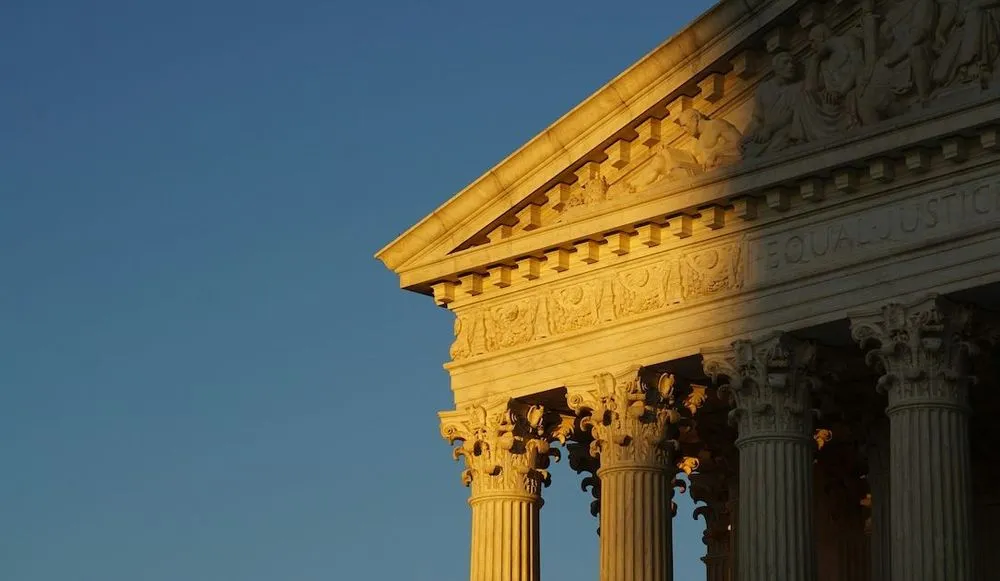Porn-site age checks will be harder to fight after ruling on Texas law, experts say
Privacy advocates and civil liberties groups have long argued that there are significant risks in requiring porn site users to verify their ages with official documents, since that process connects personal data with sensitive web-browsing information and potentially exposes it to breaches or misuse.
The Supreme Court rejected that argument in Friday’s decision in favor of Texas’ age-check law, experts say.
The 6-3 ruling emphasized that states have the authority to protect children from adult content online by requiring people seeking such material to provide a government-issued ID or upload transactional information such as banking or mortgage documents.
The court essentially ruled that the Texas law does not violate the First Amendment by interfering with access to protected speech.
The decision will have a significant impact elsewhere in the U.S., said Hayden Schottlaender, a partner specializing in state and federal regulation of technology companies at Perkins Coie, because the court said Texas’ law is “materially similar” to those in at least 21 other states.
Only one sentence in the court’s majority opinion obliquely refers to data privacy and potential breaches, saying that website operators and the third-party services they work with “have every incentive to assure users of their privacy.”
The daily headlines about data breaches across the economy tell a different story, experts say.
"I'm surprised the Court was so dismissive of the privacy concerns from online data breaches,” said Mark Brennan, global managing partner for digitalization at Hogan Lovells.
Justice Clarence Thomas, writing for the majority, compared Texas’ requirement to ID laws regulating the purchase of alcohol or pornographic materials from brick-and-mortar stores. Adults have no constitutional right to refuse to verify their ages to view online porn, he wrote.
“Any burden on adults is therefore incidental to regulating activity not protected by the First Amendment,” the majority opinion says.
The three justices in the minority argued that there is a legally significant difference between “having to flash ID to enter a club” and turning over information to a website operator to view content that many people would find “repulsive.”
“The operator might sell the information; the operator might be hacked or subpoenaed,” Justice Elena Kagen wrote.
The Texas case dates to 2023, when a pornography industry trade association, the Free Speech Coalition, sued Texas Attorney General Ken Paxton to stop the law.
Pornhub, the online adult-content giant owned by Aylo Global Entertainment, stopped operating in Texas rather than adhere to the age verification methods the state imposed. As of January, Pornhub also had reportedly blocked itself in 16 other states due to similar laws.
The limits of technology
Friday’s decision did not come as a big surprise to those who were watching the case closely.
In January, when hearing arguments on the case, several justices signaled support for the Texas law. At the time, Justice Amy Coney Barrett implied that her experience with her own seven children led her to believe a crackdown is needed.
“Content filtering for all those different devices, I can say from personal experience, is difficult to keep up with,” she reportedly said at the time.
The justices erred by failing to consider other less invasive means of age-gating porn, said Tom McBrien, counsel at the Electronic Privacy Information Center. Examples include methods “that do not create a record of which users visited which websites,” McBrien said.
The justices in the majority likely did not seriously consider the risk of data leaks because there have not been significant instances of cyberattacks affecting sites requiring age verification to date, said Leigha Simonton, a lawyer at Dykema who previously served as the U.S. attorney for the Northern District of Texas.
It would be “persuasive, at least in the future” for plaintiffs to prove that sites which require age verification are more likely to be hacked than other sites, according to Simonton.
“If it were to become an actual issue, then I think plaintiffs could reraise it,” she said.
Plaintiffs in the case portrayed the loss as a huge blow to the First Amendment.
“The government should not have the right to demand that we sacrifice our privacy and security to use the internet,” Alison Boden, executive director of the Free Speech Coalition, said in a statement. “The outcome is disastrous.”
Pornhub, which has also stopped doing business in France — its second biggest market — in response to age verification requirements, recently announced that it will stay in the U.K. market because regulators there have “consulted with industry stakeholders and have presented a variety of flexible methods of age assurance that are less intrusive than we have seen in other jurisdictions.”
Suzanne Smalley
is a reporter covering digital privacy, surveillance technologies and cybersecurity policy for The Record. She was previously a cybersecurity reporter at CyberScoop. Earlier in her career Suzanne covered the Boston Police Department for the Boston Globe and two presidential campaign cycles for Newsweek. She lives in Washington with her husband and three children.



